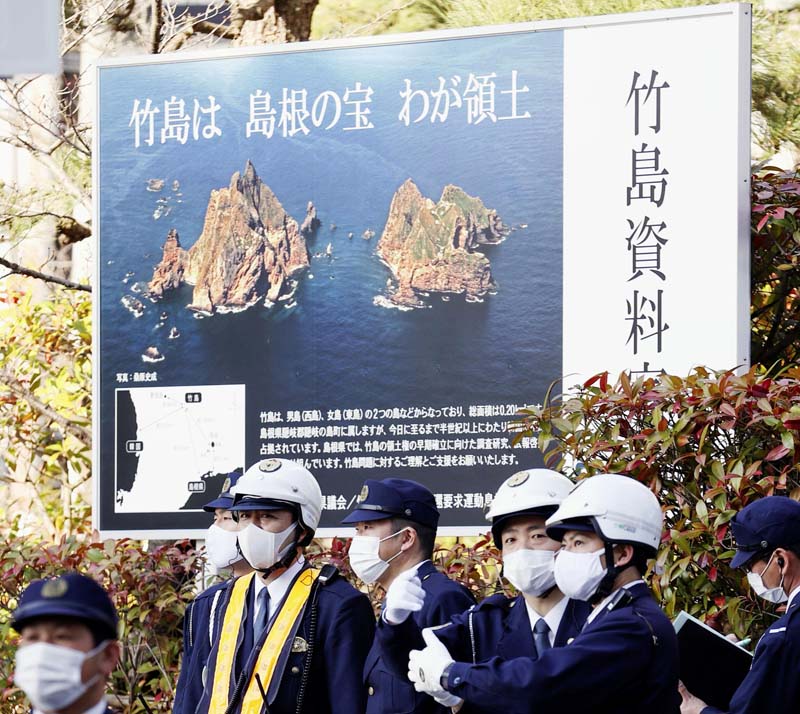

Japan renewed its claim on a contested island in the Sea of Japan held by South Korea at an annual event on Monday, escalating tensions between the neighbours whose relations were already strained over Seoul’s demands for compensation for Japanese actions in World War II.
Monday is the anniversary of the day Japan placed the island under the jurisdiction of the western Japanese prefecture of Shimane in 1905. Japan has held the annual ceremony since 2006 in a bid to step up its claim over the island.
The uninhabited islet in rich fishing grounds off the northwestern coast of Shimane is called Takeshima in Japan and Dokdo in South Korea. It has been effectively controlled by South Korea since the 1950s.
Yoshiaki Wada, a Cabinet Office official representing the central government at the ceremony in the prefectural capital of Matsue, accused South Korea of ‘unlawful occupation that has no legal basis whatsoever under international law’.
“It is totally unacceptable,” he said.
Shimane Gov Tatsuya Maruyama criticiaed South Korean moves on the island including military exercises as ‘an attempt to make the occupation of Takeshima as an accomplished fact’, and urged the Japanese government to resolve the dispute through diplomacy.
South Korea’s Foreign Ministry denounced Japan for continuing ‘futile provocations’ by holding the event.
In a statement, it demanded that the event be abolished and said it’s clear that the island is South Korean territory because of ‘history, geography and international law’.
In Tokyo, Chief Cabinet Secretary Katsunobu Kato said Japan is determined to protect its territorial rights.
“Takeshima is clearly Japanese territory under international law and in light of historical facts,” he said. “In order to solve the Takeshima problem, it is important to obtain the international community’s correct understanding.”
Relations between the two countries have plunged to their worst levels over South Korean court rulings that Japan says made ‘illegal’ demands for compensation for the sexual abuse of Korean women and use of forced Korean labourers during World War II.
The dispute over forced labor, stemming from a South Korean Supreme Court decision in 2018, escalated into a trade dispute and prompted Seoul to threaten to scrap a 2016 military intelligence-sharing agreement with Japan, a key component of their regional defense cooperation with the United States.
Japan says all wartime compensation issues were settled under a 1965 treaty normalising relations with South Korea in which Japan provided $500 million in economic assistance to the country.